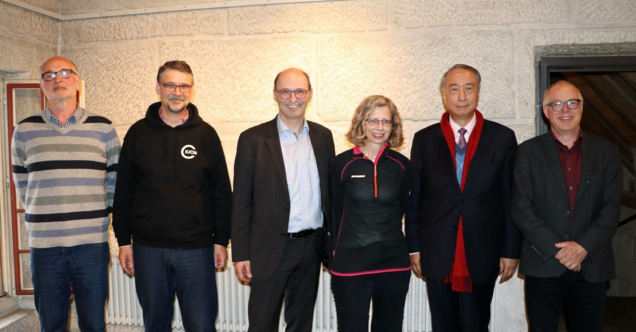
Environmental politics as a collaborative task
Dear council members of IUCN, Dear Marc Chardonnens
It is a great honour to host you here in this medieval tower, which was originally built in the 13th century and entirely rebuilt in the 16-forties. It used to be a watchtower and a prison. Now it is a public forum for political debates and democracy.I’m head of this institution since last November – and before I was head of communication at a government body you might know better: the federal office for the environment, and my former boss was Marc Chardonnens.
I am more than ever convinced that democracy, and direct democracy in particular, is very closely linked to environmental politics. In Switzerland, we have a long history of direct democratic instruments: referendas and initiatives on all institutional levels be it national, regional or local. Popular protest and the use of the instrument of the initiative stay at the beginning of the new environmental movement in the fifties of the last century. And still nowadays, among the few initiatives that find a majority of voters at the end of the day, there are remarkably many on environmental issues. This happens not on its own: Since the only lobbyists for nature are people who care about nature, we – as institutions, as administration – have to undertake whatever we can educating and informing people in easily understandable way. But people don’t want to be just informed, they want to be taken serious. They expect to be involved – and for that purpose direct democracy is an important instrument. Elsewhere similar instruments like participation and deliberative debates are being developed as well. I believe we have to conceive environmental politics as a collaborative task of between administration, NGO and people.
And yet there is another challenge: we have to care about democracy. Democratic institutions and instruments are by no means granted and the use of them has to be learned and acquainted by every generation. To support this use democratic instruments – by organizing debates and exhibitions, conferences and receptions like this one - is our job, our duty and our mission here at the Polit-Forum Berne, right in the capital and in 2 minutes walking distance to the house of parliament. Our current exhibition is lightyears away from environment with its public landscapes and strange physical creatures. It is about digital public space: does it exist? How do we use it? In the cyberspace you can meet strange creatures as well, and one species especially is to be found in both spheres: human beings. In 2020, we might host a global conference on modern direct democracy, and then at the latest environmental policy will be one important topic, and then too, hopefully, I will meet some of you here again. Thanks for your engagement, enjoy the evening and take a glimpse of Berne.
Thomas Göttin 4.5.2018

